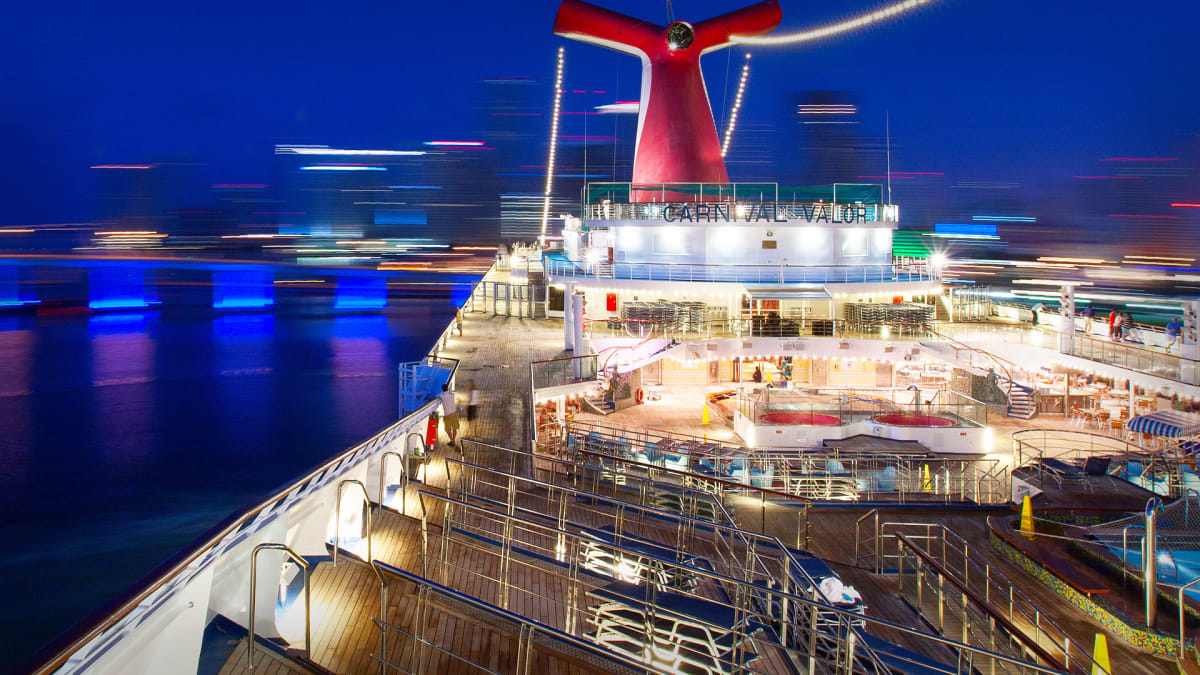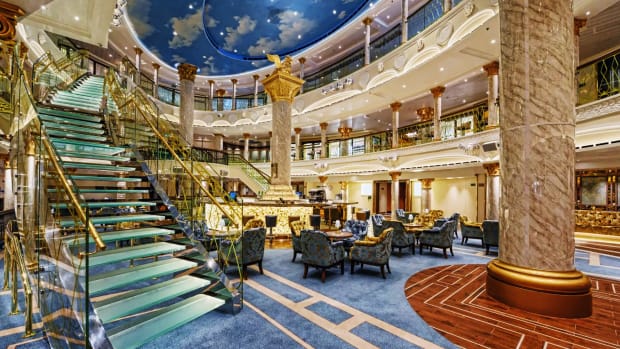
In some ways, the cruise lines had it easier when the Centers for Disease Control and Prevention (CDC) dictated their health and safety procedures.
When that was happening, Royal Caribbean Group (RCL), Carnival Cruise Lines (CCL), and any other cruise operator sailing from U.S. ports had a convenient scapegoat for any policies passengers didn't like. It wasn't the cruise lines requiring vaccination, social distancing, and mask-wearing, it was the big bad U.S. government.
In July 2022, however, the CDC unexpectedly stopped regulating the cruise industry. That allowed every company to make its own decisions regarding covid-related policies and slowly, but steadily, Royal Caribbean, Carnival, and the rest of the major cruise lines relaxed, then eliminated any specific health and safety rules that had been implemented.
The last of those to go involved crew members wearing masks. Now, that's optional for people working for Carnival or Royal Caribbean, which led to an interesting interaction between Carnival Loyalty Ambassador John Heald and a recent Carnival passenger on Heald's Facebook page.
It was a conversation that showed that, while many people welcome the relaxed rules, others have reactions that you may not expect.

Image source: Carnival
Carnival Customer Questions Crew Mask Wearing
With masks being optional on ships, some crew members opt to wear them, and others choose not to. That's a practice that one Carnival passenger questioned Heald about, perhaps not in the way you would expect.
Heald: I remain unvaccinated, so this was our first no-restrictions Carnival cruise on Panorama. We both had no problems and did not exercise any extra precautions. Question though. Most staff were not masked but our wait team did and it made all of us at the table feel very uneasy like they were hiding something from us all.
The implication here is that the crew members were wearing masks because they were sick. That's something Heald shot down immediately in his response.
Mask wearing is recommended but not required for our crew. Some, OK, most decide not to wear one but some, like your waiter do. This protects them and makes sure they are able to continue to work and not have to be quarantined if they were sick...which I assure you they were not. Unless otherwise stated by the senior management mask wearing is as I said a personal choice.
Most Carnival Passengers Back the Policy
And, while the original question, which also included the line "Crew should not be allowed to wear masks. Period!" was an obvious attempt to launch a political debate, the hundreds of respondents did not take the bait.
"I’m 80% deaf and lip read But I’d never question anyone’s right to wear a mask or not ...it’s personal choice and perfectly acceptable and thanks Carnival for giving the staff free choice," wrote Mary Pailing.
That sentiment was repeated by Barbara Morrison Vanlandingham.
"We should all be able to do what we feel is best for ourselves. I chose to unmask but if others feel safer wearing one then I say wear it," she said.
Marsha Blalock pointed out another obvious reason for crew members wearing masks.
"As everyone else has said, it's a personal choice. Each person has their reasons, and it's understandable. We are also in the middle of cold/flu/covid season so protecting our ability to work and stay well or being protective of our loved ones is understandable," she said.
The reality is that health concerns aside, crew members -- especially those in positions that get tipped -- take a financial risk if they opt to not wear a mask. When a crew member gets covid, they're quarantined for a minimum of five days (pending negative tests).
That's five days isolated in a tiny cabin with little to do while you're not working (and making extra money through tips). Covid may not get talked about much by the cruise lines now that the CDC no longer monitors onboard levels, but it remains a factor with crew with infections still being an issue.
Mask-wearing may be an attempt to avoid illness, a desire to not infect guests, or likely some combination of two. It's not -- even in an industry with very little government oversight -- an attempt to keep sick crew members working.







